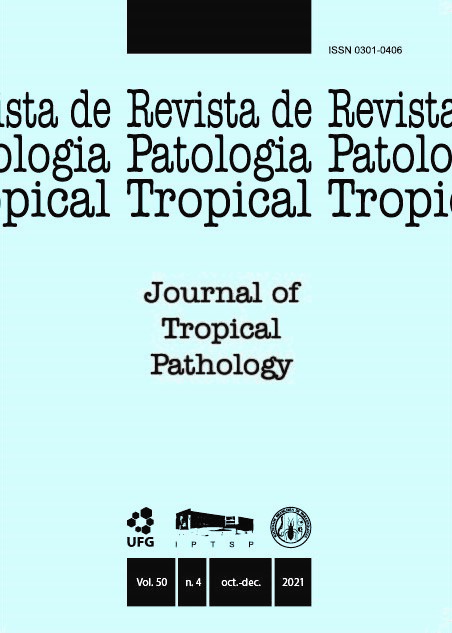Considerations about leishmaniasis and the current scenario for the development of new treatments
DOI:
https://doi.org/10.5216/rpt.v50i4.69817Resumo
Leishmaniasis is a neglected disease that affects millions of people around the world, mainly socially vulnerable populations and is considered a serious public health problem. Caused by several species of the flagellated protozoa of the Leishmania genus, it is transmitted to man through female sand fly bites. The disease can present the cutaneous, mucocutaneous and visceral clinical forms, varying according to the parasite species and depending on host immune response. Depending on its evolution, the disease may pose serious risks to the afflicted individual’s health. In general, treatment for Leishmaniasis is with pentavalent antimonials, in use for approximately 70 years. However, the existing treatment for Leishmaniasis presents drawbacks such as high toxicity, several side effects, cases of resistance, highlighting the need for new efficient therapeutic approaches. Given all the problems that involve the current treatment of leishmaniasis, it is of paramount importance to seek and screen new molecules that have leishmanicidal activity, meet the safety criteria, while presenting low toxicity, low cost, easy administration and that cure efficiently. This review presents some considerations on the leishmaniasis situation, its treatment and the current panorama for the development of new therapies.
KEY WORDS: Leishmania spp.; therapeutics; drug development; immune response.
Downloads
Downloads
Publicado
Como Citar
Edição
Seção
Licença
The manuscript submission must be accompanied by a letter signed by all authors stating their full name and email address, confirming that the manuscript or part of it has not been published or is under consideration for publication elsewhere, and agreeing to transfer copyright in all media and formats for Journal of Tropical Pathology.

